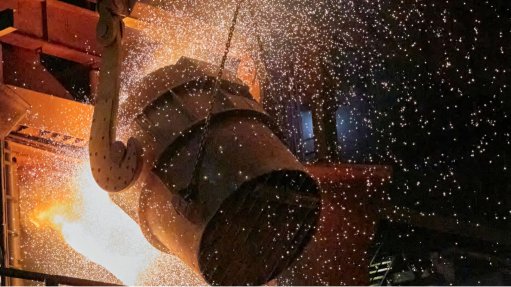I owe, I owe
In the King James version of the Bible, Proverbs 22 verse 7 states: “The rich ruleth over the poor, and the borrower is servant to the lender.” Similarly, in Hamlet, William Shakespeare cautions that “neither a borrower nor a lender be, for loan oft loses both itself and friend, and borrowing dulls the edge of husbandry”.
To avoid any confusion, husbandry refers to the thrifty management of a household. Put simply, it means you should not lend money to or borrow from a friend because, in all likelihood, this will result in the loss of both friendship and money.
Perhaps the International Bank for Reconstruction and Development (the World Bank) is not the South African government’s friend. And what about the International Monetary Fund (IMF)? The World Bank and the IMF are family – they constitute two-thirds of the Bretton Woods institutions, established in July 1944.
In July 2020, the IMF extended to the South African government a $4.3-billion, roughly R65-billion, financial ‘lifeline’. Eighteen months later, on January 21, the World Bank announced that it was lending our government $750-million, which equates to R11.5-billion. The IMF loan will be repaid at a 1.1% interest rate over 20 months, beginning 40 months after the disbursement of the funds. This means the first instalment is due in November 2023. The World Bank loan is also expected to attract interest of 1% to 2%.
At that time, government would do well to take heed of the song from Walt Disney’s animated musical fantasy film, Snow White and the Seven Dwarfs; the latter cheerfully embarked on their daily grind: “I owe, I owe; So off to work I go; I owe, I owe; Can't pay them all and so; Oh woe, oh woe, oh woe; I owe, I owe . . .”
The obvious question is whether this money will be allocated in such a manner that it will generate returns – financial returns, that is – for how else will the repayments be honoured? And where else will the money come from?
The opening paragraph of the World Bank and National Treasury joint media statement, released on January 21, reads: “The World Bank Group board of executive directors . . . approved South Africa’s request for a $750- million development policy loan. This loan will support the government of South Africa’s efforts to accelerate its Covid-19 response, aimed at protecting the poor and vulnerable from the adverse socioeconomic impacts of the pandemic and supporting a resilient and sustainable economic recovery.”
Commenting, the National Treasury’s director-general stated: “The World Bank budget support is coming at a critical time for us and will contribute towards addressing the financing gap stemming from additional spending in response to the Covid-19 crisis. It will assist in addressing the immediate challenge of financing critical health and social safety net programmes, while also continuing to develop our economic reform agenda to build back better.”
Fact is, it’s not ‘support’, it’s a loan. My parents supported me financially as I was growing up. It was not a loan; I sincerely hope not. I will need to screen my calls carefully from now on – just in case they take note and reconstitute their past financial support.
Remember that a loan is debt. So, to what extent is South Africa in debt? Well, according to the South African Reserve Bank Quarterly Bulletin, published on December 15, South Africa’s gross debt amounted to $261-billion, roughly R4.2 trillion. Also consider that, according to Bloomberg, the South African economy has entered its ninety-seventh month of a weakening cycle.
The IMF, in Article IV Mission, published on December 8, called on government to introduce a “credible public debt anchor”, which is defined as a government’s goal not to surpass a predefined debt ceiling over time.
I fear this won’t be forthcoming.
Article Enquiry
Email Article
Save Article
Feedback
To advertise email advertising@creamermedia.co.za or click here
Announcements
What's On
Subscribe to improve your user experience...
Option 1 (equivalent of R125 a month):
Receive a weekly copy of Creamer Media's Engineering News & Mining Weekly magazine
(print copy for those in South Africa and e-magazine for those outside of South Africa)
Receive daily email newsletters
Access to full search results
Access archive of magazine back copies
Access to Projects in Progress
Access to ONE Research Report of your choice in PDF format
Option 2 (equivalent of R375 a month):
All benefits from Option 1
PLUS
Access to Creamer Media's Research Channel Africa for ALL Research Reports, in PDF format, on various industrial and mining sectors
including Electricity; Water; Energy Transition; Hydrogen; Roads, Rail and Ports; Coal; Gold; Platinum; Battery Metals; etc.
Already a subscriber?
Forgotten your password?
Receive weekly copy of Creamer Media's Engineering News & Mining Weekly magazine (print copy for those in South Africa and e-magazine for those outside of South Africa)
➕
Recieve daily email newsletters
➕
Access to full search results
➕
Access archive of magazine back copies
➕
Access to Projects in Progress
➕
Access to ONE Research Report of your choice in PDF format
RESEARCH CHANNEL AFRICA
R4500 (equivalent of R375 a month)
SUBSCRIBEAll benefits from Option 1
➕
Access to Creamer Media's Research Channel Africa for ALL Research Reports on various industrial and mining sectors, in PDF format, including on:
Electricity
➕
Water
➕
Energy Transition
➕
Hydrogen
➕
Roads, Rail and Ports
➕
Coal
➕
Gold
➕
Platinum
➕
Battery Metals
➕
etc.
Receive all benefits from Option 1 or Option 2 delivered to numerous people at your company
➕
Multiple User names and Passwords for simultaneous log-ins
➕
Intranet integration access to all in your organisation
















